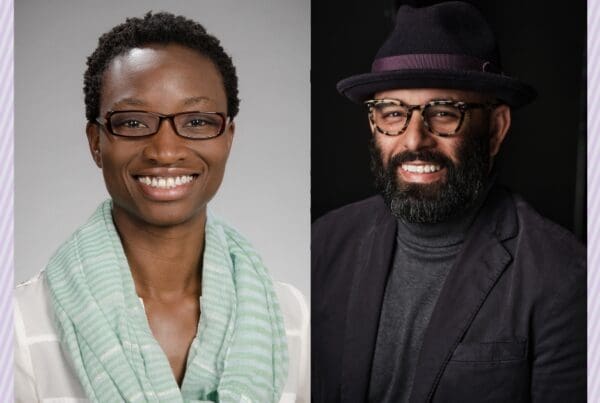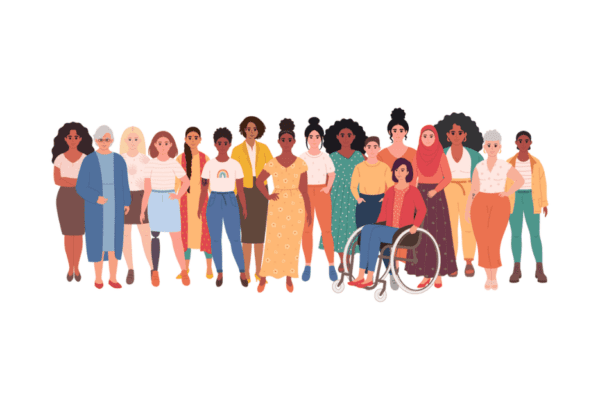Pride Month is a time of celebration, full of rainbows and fabulousness and, for LGBTQ+ people, taking pride in identity. It is also a time to remember why the month exists: Because of the Stonewall Uprising in 1969, when queer people said enough was enough and refused to hide or be ashamed of who they were. The movement, which existed long before Stonewall, was influenced by the resistance of gay men and women, drag queens and transgender women and especially Black and other trans women of color.
Seattle is known for being a place where queer people can live openly. Despite that, this area isn’t free from hate and discrimination against LGBTQ+ people. Nationally, anti-LGBTQ+ legislation has reached a new high, especially anti-trans legislation.
It’s an important reminder of how vital it is to speak up against homophobia, transphobia and discrimination against people in the LGBTQ+ community and to listen when queer people share their experiences and ask for your allyship.
Read on to hear from some of our LGBTQ+ employees about their experiences and perspectives.
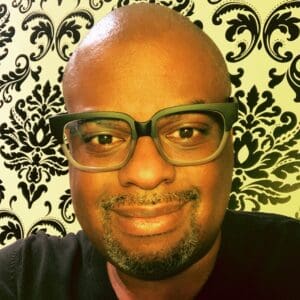
Brian Davis
Brian Davis, Administrative Assistant, UW Medicine Office of Healthcare Equity
What is your favorite part of being in the LGBTQ+ community?
The joy I get from the community is the richness contained within our diversity. Because we are everywhere and exist everywhere, we come from everywhere. Those of us who appreciate that aspect within our community know that this tapestry is magic.
Are there any common misconceptions about queerness, with your identity in mind specifically, that you want to correct?
One common misconception is that we have an agenda of some sort. Our agenda is to be. Everything we advocate for is in service to just being ourselves freely and living our lives as freely as anyone else.
Why is it important for people to be out at work?
It’s important for me to be out at work because visibility creates awareness, understanding and support. Because not everyone is able to be out, it’s important that I am.
How can people be good LGBTQ+ allies?
Allyship is earned, not assumed. Advocate for our dignity and respectful treatment. Be brave in the spaces we might not be occupying. Then you won’t need to call yourself an ally. You’ll already be one.

Davia Loren
Davia Loren, MD, neonatologist
What is your favorite part of being in the LGBTQ+ community?
I love the sense of family I experience among fellow members of the LGBTQ+ community. I love feeling seen, sharing our compassion from lived experiences and role modeling for people early in their own journeys of self-discovery around their gender and sexuality identities. I adore the delightful diversity of our LGBTQ+ community.
Are there any common misconceptions about queerness, with your identity in mind specifically, that you want to correct?
As a member of the LGBTQ+ community I want to elevate the distinctions between sexuality and gender. Being lesbian and being transgender are both deeply held identities for me and yet they are entirely separate. As a transgender person, I wish I could undo how gender is socialized in our society. Gender is identity, not anatomy. Gender identity is a complex interplay of multiple facets of self-expression and an innate sense of knowing who you are. Being transgender is not a choice. Transitioning in whatever way fulfills one’s authentic self is not a choice any more than breathing is a choice. Who we are attracted to is not a choice, it’s just being authentic with our feelings of who we love. We’re as diverse as the whole world of people around us. If you’ve met one transgender person or one lesbian, you’ve met one transgender person or one lesbian (and they might be the same person). We’ve always been here, and we’ve been a part of every society on the planet extending as far back in time as we have written records.
Why is it important for people to be out at work?
Being out at work can help patients and family members feel more seen and validated as they themselves see members of our community around them. Being out at work helps create a more welcoming clinical environment for LGBTQ+ people who often feel very fearful of how we’ll be treated by staff and providers. Being out at work helps diminish barriers for others to be out and helps reduce misconceptions about LGBTQ+ identities. And speaking from the specific perspective of transgender identity, being out at work helps to celebrate the true diversity of gender. If you don’t personally know someone in the LGBTQ+ community then the only source of your impressions and biases comes from media. We have to change that through the presence of our fully authentic selves being seen.
How can people be good LGBTQ+ allies?
Examine your own biases. Seek out books, movies, podcasts, TEDTalks and TV shows that elevate our stories. Please read our narratives written by us. Please stand up for our rights (they’re your rights too!). Please be an upstander and confront people when you encounter microaggressions or misrepresentations that disparage or diminish the LGBTQ+ community. Examine your own life journey and consider where and how you learned about sexuality and gender. Protect transgender kids especially and support their access to gender-affirming healthcare.
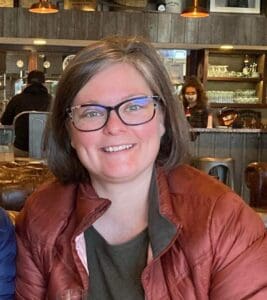
Erin Schadt
Erin Schadt, Director for Strategic Communications, UW Medicine Advancement
What is your favorite part of being in the LGBTQ+ community?
I love the diversity within the LGBTQIA2S+ community. I identify as gay or queer, but I love that there are so many different identities that are held in the community. As a whole, we haven’t always been as accepting of all identities as we should have been, and there is growth still needed, but we’ve made progress and we all benefit from being radically inclusive.
Why is it important for people to be out at work?
It feels incredibly risky to be out anywhere, frankly, but it’s important to me, personally, to be out at work to be an example to others. To show that you can be out, and when you do, you can see others like you who will help you too, is so valuable. Being queer means being so very invisible nearly all the time, and then when you’re visible, it’s often in a negative way. It’s really hard to explain just how important and powerful “seeing yourself” out in the world and in the workplace is. Honestly, I’ve only worked with a couple of queer people in my entire career, so being at a larger institution has been wonderful in the sense that I can actually meet and get to know people like me!
How can people be good LGBTQ+ allies?
It’s really common to be gaslighted when queer people raise a concern, so just listening and not saying things like, “I’m sure they didn’t mean it like that” or “assume the best,” is most helpful. Being open to listening and not being afraid to talk about sexual and gender identity. It’s just part of who I am, so not talking about it feels like it’s not okay to be me.

Harveshp Mogal
Harveshp Mogal, MD, MS, FACS, Associate Professor, Department of Surgery, UW School of Medicine
What is your favorite part of being in the LGBTQ+ community?
Growing up in a country like India, where being openly gay was not only unacceptable but illegal, I was very aware and fearful of my otherness. I never fully understood my need for belonging until I moved to the U.S. and gradually started to find my people and community. It helped me fully embrace the part of myself that was central to my existence. I am grateful every day for the love and support shown to me, and I am humbled by the courage and privileged to walk in the footsteps of all those who have been at the frontlines of advocating for our basic right to love and exist, from Stonewall to marriage equality.
Are there any common misconceptions about queerness, with your identity in mind specifically, that you want to correct?
I would encourage folks to recognize that sexual orientation and gender identity are a part of, and heavily intersect with, our other identities including race, class and immigration status, to name a few, and that these identities combine to define our lived experiences. When we ask for our identities to be acknowledged, it isn’t so we are granted special rights but so that we can break the cycle of invisibility and marginalization that have been perpetuated by heteronormative systems over millennia, so that LGBTQIA+ folks have access to the same rights and privileges that everyone else does.
Why is it important for people to be out at work?
True inclusion happens when people are unafraid to express their identities whether in the safety of their homes or at work. While recognizing that there are situations where people understandably feel unsafe coming out, I think it is essential that LGBTQIA+ folks, especially those that are still struggling to reconcile their personal and professional identities, see us be our authentic selves and in turn see themselves reflected in us. There is a vast body of compelling data to show that when people can safely be out and be themselves, engagement and productivity increase substantially. We also cannot underestimate the immense benefit to our LGBTQIA+ patients of having faculty and staff who are openly out at work care for them. It is also important that LGBTQIA+ faculty and staff are visible and represented at the highest levels of leadership. This inspires confidence in our commitment to be truly inclusive and ensures that we bring diverse perspectives to the table especially when it comes to important decisions that affect us and our communities.
How can people be good LGBTQ+ allies?
Allyship is a continuous process of action that happens on a day-to-day basis. Being an ally means understanding that one’s privilege is a gift that can be used to create safe spaces for us to thrive and elevate the status of all of those around us. Be an active listener. Speak up when you see or perceive the oppression or marginalization of your LGBTQIA+ colleagues and friends. Take the initiative to educate yourself on issues that are important to us and if you make a mistake, take responsibility, strive to do better and move on.

Mary Vogelzang
Mary Vogelzang, RN, Trauma and Surgical ICU at Harborview
What is your favorite part of being in the LGBTQ+ community?
My favorite part of being part of the LBGTQ+ community is that it feels like a private club and takes a special pass to join. There are private jokes, our own history and lots of sub clubs that you can join.
Are there any common misconceptions about queerness, with your identity in mind specifically, that you want to correct?
I don’t really see any common misconceptions, though 10 to 20 years ago I would have said that people expected one person in the couple to be more masculine and the other person to be more feminine but I think our society has opened up enough where people realize that there are no preconceived roles in straight or gay couples.
Why is it important for people to be out at work?
Being out at work helps normalize people and helps break down the common misconceptions — we are all flawed human beings.
How can people be good LGBTQ+ allies?
You can be a good LGBTQ+ ally by doing what you do for any friend: Be supportive, recognize we are all different and put yourself in their shoes when there are challenges.
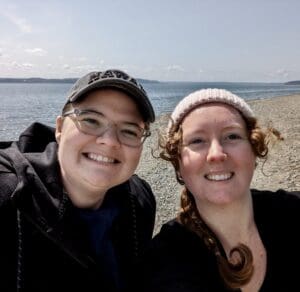
Megan Huckaby and Audrey
Megan Huckaby, Social Media Specialist, UW Medicine Strategic Marketing and Communications
What is your favorite part of being in the LGBTQ+ community?
My favorite part of being in the LGBTQ+ community has to be the absolute joy that you see in most people. For me that stems from knowing that I am not alone. I grew up pretty sure that I was the only person going through being in the closet and all that comes with that. Turns out I was wrong! There is a whole community out there that made me feel at home and able to be 100% myself.
Are there any common misconceptions about queerness, with your identity in mind specifically, that you want to correct?
One question I get asked more often than I would like is which one of us is the man in our lesbian relationship. I always gently explain how that is a stereotype about LGTBQ+ relationships. Neither of us is “the man.” We are both just people who love each other. I fix the technology and she kills the spiders. Neither of us enjoys mornings and would rather be on the beach at any given moment. It’s as easy as that.
Why is it important for people to be out at work?
Unfortunately, work is where we spend the majority of our time. Being able to be out and safe at work means being able to focus solely on your daily tasks without having to worry about someone finding out (and in some cases putting your job at risk). It also helps us avoid awkward situations, which no one enjoys. It’s always strange and scary when someone asks, “Do you have a husband?” Nope, but I will have a wife in October.
How can people be good LGBTQ+ allies?
I hear this question a lot. One of the biggest things for me is speaking up when you hear someone perpetuating a harmful stereotype. People in the LGBTQ+ community are just people. We want dogs and cats and houses. A steady income. To go back to sleep. Some want kids, some don’t. Just normal, everyday people.

Nicki McCraw
Nicki McCraw, Assistant Vice President, UW Medicine Human Resources
What is your favorite part of being in the LGBTQ+ community?
I love how incredibly diverse the LGBTQ+ community is. It is open and welcoming, and I can be exactly who I am there.
Why is it important for people to be out at work?
First, it is incumbent on us to create an open, equitable and welcoming environment at work so LGBTQ+ people feel safe to bring their full selves to their jobs. It is important to be out for many reasons. People do a better job when they do not have to worry about backlash for being who they are. Also, we know that LGBTQ+ issues are easier to understand and support when someone personally knows someone in the community. We build allies by showing up and being who we are.
How can people be good LGBTQ+ allies?
While it’s easy to call yourself an ally, being an ally requires action. To be an ally, you need to be willing to be consistent in your support of LGBTQ+ rights and defend LGBTQ+ people against discrimination. Be a good listener. Don’t assume all your friends, coworkers and family are straight or that you know someone’s pronouns. When in doubt, ask what you can do to be supportive.
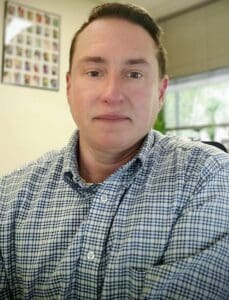
Sean Johnson
Sean Johnson, LSWAIC, Program Director, Transgender and Gender Non-Binary Health Program
What is your favorite part of being in the LGBTQ+ community?
My favorite part of being in the LGBTQ+ community is connecting to inclusive and intersectional histories, perspectives and movements. While the overall community is large and sometimes disjointed in our organizing efforts or awareness of how systemic oppression impacts all of us as individuals, our community doesn’t often shy away from the harder discussions or take “no” for an answer.
Are there any common misconceptions about queerness, with your identity in mind specifically, that you want to correct?
As a queer trans man, some common misconceptions I encounter is that everyone in the TGNB community is seeking medical or surgical care related to their gender identity and that challenging the binary gender system or heterosexuality is something new or a modern issue. We all have a gender identity and a sexual/romantic orientation, with diversity or variation in both of these areas having been recorded throughout the world in many societies going back to ancient civilizations and Indigenous cultures.
I would say another general misconception is that the LGBTQ+ community is a radical or progressive monolith and that trans and non-binary communities have the same access to lesbian and gay spaces, are represented equally in LGBTQ+ movements and celebrations and are embraced fully by the LGB community. Gender identity — like race, ethnicity, disability and sexual orientation — is one aspect of a person and, while there is overlap in the intersections of our identities, the larger LGBTQ+ community still has work to do in rooting out transphobia, sexism, racism, ableism, etc. in LGBTQ+ spaces.
Why is it important for people to be out at work?
For me and my lived experience that included coming out as a lesbian in the late 90s and the “don’t ask don’t tell” era. The LGBTQ+ community zeitgeist at that time was to “come out” so that dominant false narratives of who we are and how we live could be challenged in the mainstream discourse — the idea being that horrible stereotypes would be countered or dispelled when people had real-life examples of LGBTQ+ people to reference. I still place value on this premise and have continued to be visible throughout my gender transition in social and professional spaces. It’s not always easy and can be isolating, but if reasonably safe to do so, it’s worth it for me personally.
How can people be good LGBTQ+ allies?
Staying connected to LGBTQ+ people and community efforts is one way to remain engaged and aligned. Supporting LGBTQ+ initiatives and advocacy locally is another. This year is once again a record-breaking year for legislative proposals that are anti-LGBTQ+ (238 bills by April 2022), many of which target LGBTQ+ youth in healthcare and school environments. Being ready to march, write or speak out against this wave of exclusion is always a good way to demonstrate allyship.
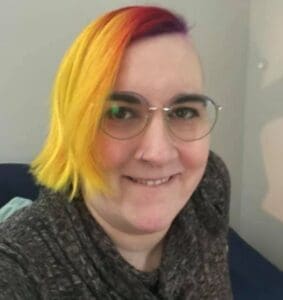
Veronika Sucy
Veronika Sucy, Epic Security Analyst
What is your favorite part of being in the LGBTQ+ community?
I grew up in a rather progressive area in Western New York. When I decided a couple years ago to move across the country to Seattle, I was shocked to see so many queer people just walking around Capitol Hill. This has become one of my favorite things about the queer community in Seattle: getting to see other queer people just being.
Are there any common misconceptions about queerness, with your identity in mind specifically, that you want to correct?
There is a lot of misinformation going around lately regarding Trans people. A lot of children know they are Trans at a young age. Having access to hormone blockers ensure that a child does not go through an incorrect puberty for their gender identity. This helps to avoid the actual irreversible harm of going through the incorrect puberty. Would you want to go through a puberty of a different gender than you identify with? Neither do we, and puberty blockers help kids take the time to explore their own gender before committing to one puberty over another.
Why is it important for people to be out at work?
One of the main reasons I transitioned was to be visible. Visibility is important in the Trans community, as a lot of Trans people slip into the shadows after transition. It’s important to me to continue to be visible, so that closeted Trans people can see that everything can be better when transitioning to the real them.
How can people be good LGBTQ+ allies?
The easiest way to show your support for Trans people is to include your pronouns in your signature. Adding pronouns helps to normalize the practice and lets Trans people know that it is safe for them to do the same. It also leads to less misgendering with cisgender people who have non-gendered names like Chris, Tony or Cameron.
Editor’s note: Responses were lightly edited for length, clarity and style.
